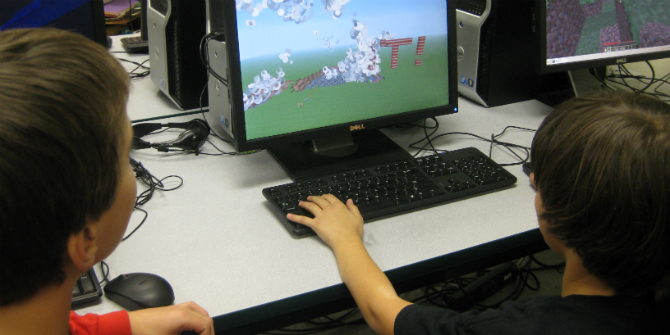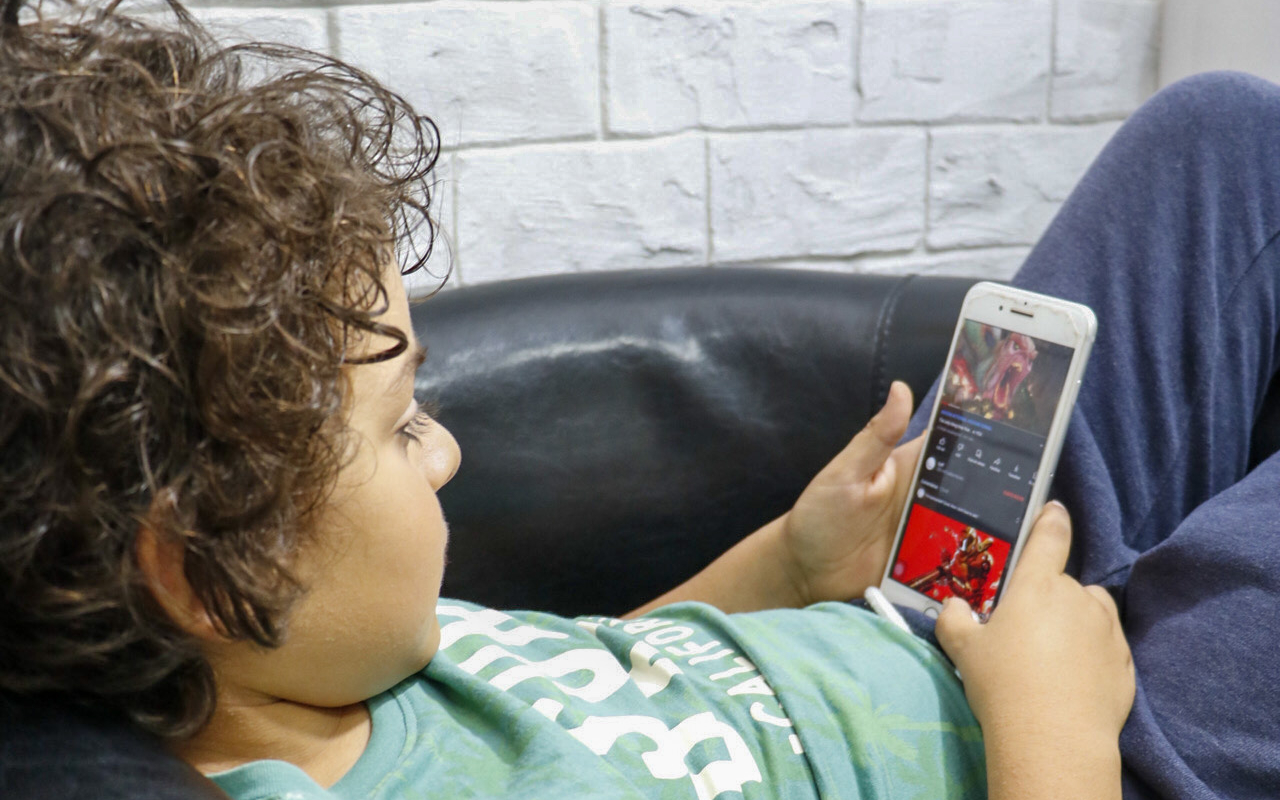 Should you let your toddler use an iPad? Do we know how touchscreen devices affect infants and toddlers? Celeste Cheung is a postdoctoral researcher at Birkbeck University of London and works on the TABLET project, which investigate how 6- to 36-month olds use touchscreen devices, and how these may impact their brain, cognitive and social development. Celeste discusses how preliminary study findings indicate that time spent on a device, as well as the content and context of screen use matter. [Header image credit: W. Vota, CC BY-NC-SA 2.0]
Should you let your toddler use an iPad? Do we know how touchscreen devices affect infants and toddlers? Celeste Cheung is a postdoctoral researcher at Birkbeck University of London and works on the TABLET project, which investigate how 6- to 36-month olds use touchscreen devices, and how these may impact their brain, cognitive and social development. Celeste discusses how preliminary study findings indicate that time spent on a device, as well as the content and context of screen use matter. [Header image credit: W. Vota, CC BY-NC-SA 2.0]
In August 2016, Ofcom announced that 86% of UK homes now have internet access and for the first time, this access is predominantly via touchscreen devices such as smartphones or tablets, rather than laptops. Mobile media have become an integral part of family life, even for infants and toddlers. The topic of screen time, whether or not it should be restricted and at what age, is hugely controversial, but touchscreens are new enough that scientific research has not yet caught up to provide clear answers.
Studying touchscreen devices and children’s development
Our team at the Birkbeck Babylab has embarked on the first UK scientific study (The TABLET project) to use technology to investigate how 6- to 36-month olds use touchscreen devices, and how these may impact their brain, cognitive and social development.
We collected information via an online survey asking parents of toddlers about their child’s media use, their physical and mental development, as well as their attitude to touchscreens, and invited 56 parents and their infants to our lab for in-depth cognitive assessments – the first one when their children were aged 1, and the second one five months later. The families were chosen based on whether or not their child used touchscreen devices on a daily basis. By comparing the lab measures between these two groups, controlling for known confounds (e.g. age, sex, maternal education and TV exposure), we will be able to identify any associations between touchscreen use and negative or positive developmental outcomes.
What survey results tell us so far
The lab-based research is still ongoing, but meanwhile, our online survey has been very informative about ownership, usage and parents’ attitudes. Here are some ‘hot off the press’ figures from over 700 responses:
- 99.7% of families own at least one touchscreen, with 97.5% owning multiple devices, and some owning as many as 14;
- 51% of infants between 6 to 11 months use a touchscreen daily, on average for 8.53 minutes a day; 92% of 26- to 36-month-olds do so for 43.95 minutes every day on average;
- around 10% of toddlers under 3 have their own touchscreen device, and those from lower socioeconomic status (SES) background are three times more likely to own a touchscreen device (24%) than those from high SES (7%) backgrounds;
- 80% of 6- to 11-month-olds use touchscreens mostly to watch videos, but more than half (57%) of toddlers above the age of 2 use these devices mainly to actively scroll or tap the screen;
- while 82% of parents believe that usage should be restricted for this age group, 91% also accept that touchscreen media can have a positive effect on child development.
Parents’ perspectives
Parents’ comments about their child’s touchscreen use and whether they think such use is good or bad revealed some interesting perspectives. While some expressed concerns that their child “becomes hypnotised” and “transfixed” by screens, others attest to their usefulness:
Education apps have helped my son develop better motor skills and knowledge of letters.
Some also reported mixed feelings of both guilt and awe, such as:
when my 2-year-old knows how to select his favourite video of himself and replay it.
Most believe in moderating use, setting limits rather than restrictions, but a few strongly believe that
these devices can be harmful for children before the age of 2.
Overall, most were confused, with one parent noting:
I have no evidence to base my answer on.
Useful advice?
In the absence of adequate scientific evidence parents had previously been advised on zero screen time before the age of 2, a guideline based on findings of negative effects from passive TV viewing and computer gaming in older children.
The problem is that touchscreens are not the same as TV or computers; they combine both elements of passive entertainment of TV and interactivity of videogames. Active interaction with touchscreens can generate dynamic stimulation, and, if used appropriately, may be just as engaging and cognitively stimulating as traditional toys or books. And even for TV viewing, not all exposure is bad – educationally informed programming can have positive influences on executive function, language and numeracy. These guidelines were recently revised, given that the media environment in homes is changing fast, as is the evidence about its possible impacts. But they remain problematic, as Sonia Livingstone laid out in a previous post on this blog.
A recent report from the Technology and Play study has specified ways in which educational and non-educational apps can be distinguished by parents in order to promote play and creativity. Such findings may be considered and included in the American Academy of Pediatrics’ new revision of their guidelines on screen time.
Similarly, in our first published findings we have shown that the age when toddlers first scroll a touchscreen is related to how early they can perform fine actions with their hands such as stacking blocks (‘fine motor skills’); passive video watching shows no such association. We found no relationship between age of first touchscreen use with language or walking development.
Content and context
While we don’t currently know if there are negative impacts of touchscreen use on other areas of development, these preliminary results suggest that any impacts found may depend on how parents and toddlers are using the devices. We should take into account not only how long toddlers spend on them, but also the content and context of use. The scientific studies investigating these factors are currently in their infancy, but over the next few years projects such as the TABLET study should provide the evidence on which parents can base their decisions about how to create the right technology environment for their children.






